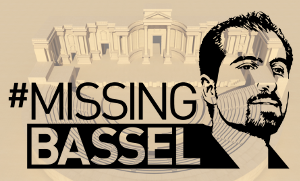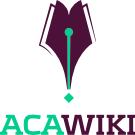 Today is Bassel Khartabil’s 35th birthday and his 1530th day of detention in Syria, and the 233rd day since he was moved to an unknown location, and not heard from since (previously: 1, 2, 3). Shortly after his disappearance last year I helped organize (CFP) a book sprint in his honor and calling for his freedom.
Today is Bassel Khartabil’s 35th birthday and his 1530th day of detention in Syria, and the 233rd day since he was moved to an unknown location, and not heard from since (previously: 1, 2, 3). Shortly after his disappearance last year I helped organize (CFP) a book sprint in his honor and calling for his freedom.
After a bit of copy editing and lots of formatting and format coversion the resulting volume, Cost of Freedom: A Collective Inquiry is now available for reading online and downloading, and in print.
I wrote a quasi-review of the book for the Creative Commons Taiwan newsletter:
The Cost of Freedom essays that work best are directly about Khartabil or about the broader costs of free knowledge movements. Barry Threw’s The Uncommon Creativity of Bassel Khartabil gives a sense of the personal and social moorings of the Free Bassel campaign … Several essays offer helpful criticisms of free knowledge movements, among them John Wilbanks’ Inside or Outside the Movement about the costs of internecine posturing, Giorgos Cheliotis’ The Shit of Freedom, a rant of love and frustration with movement participants “too busy working on your sales pitch, or curating your posse”, and Shauna Gordon-McKeon’s Free Culture in an Expensive World …
I also contributed an essay to the book, My Brain on Freedom, which begins:
A cost of participation in free knowledge movements is “stupidity” – an assault on intelligence, wisdom, reason, knowledge. The net effect of free knowledge on intelligence is probably positive, possibly hugely positive if free knowledge movements succeed in thoroughly commoning the noosphere, making collaboration and inclusion the dominant paradigm for all economically valuable knowledge production and distribution. But the stupidity costs of free knowledge are real and painful, at least to me. Fortunately the costs, if acknowledged, can be decreased, and doing so will increase the chances of achieving free knowledge world liberation.
Waiting…, a book by Bassel’s spouse Noura Ghazi Safadi, a Syrian human rights lawyer, is also available today in electronic and print formats. Both books are dedicated to the public domain with CC0-1.0.
Thanks to everyone who contributed: Christopher Adams, The Big Conversation Space (Niki Korth & Clémence de Montgolfier), Tim Boykett, Lorna Campbell, Giorgos Cheliotis, Tyng-Ruey Chuang, ginger coons, Ben Dablo, Georges Dahdouh, Patrick W. Deegan, Dr. Martin Paul Eve, Pauline Gadea, Lucas Gonze, Richard Goodman, Shauna Gordon-McKeon, Christian Grothoff, hellekin, Adam Hyde, Pete Ippel, Jaromil, Muid Latif, Lawrence Lessig, Yu Li, Mike Linksvayer, Geert Lovink, Sulaïman Majali, Jean Noël Montagné, Jon Phillips, Théophile Pillault, radium, Donatella Della Ratta, Clément Renaud, Faraj Rifait, Mélanie Dulong de Rosnay, Natacha Roussel, Noura Ghazi Safadi, Anasuya Sengupta, Barry Threw, Stéphanie Vidal, Marc Weidenbaum, John Wilbanks, Maarten Zeinstra, Mushon Zer-Aviv, and Ethan Zuckerman.
Hopefully we will see Bassel’s release before his next birthday. Until then celebrate Bassel’s creativity and demand his release. These books are two of many projects with those aims: freebassel.org.




